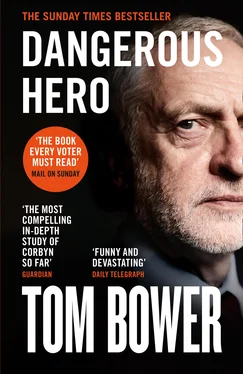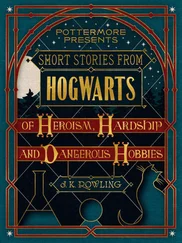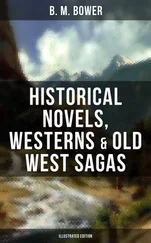1 ...6 7 8 10 11 12 ...21 In that era, the distinction between Marxists and Trotskyites was important. Refashioned as the ‘new left’ to separate themselves from Stalin’s crimes, the Marxists viewed history through the lens of the class struggle. Britain’s evolution into a truly socialist society, they believed, would start with a communist state under the dictatorship of the proletariat. British Marxists like Keith Veness spoke about a ‘revolution’ to assert the proletariat’s control, but without the bloodshed that had marked events in Russia in 1917.
Trotskyites were more aggressive. Leon Trotsky had led the Red Army after 1917 to defeat the counter-revolutionary tsarist White Army supported by Winston Churchill and the British government. Thereafter, ignoring the mass starvation caused by the Bolsheviks’ forced collectivisation of agriculture, he campaigned to spread the communist revolution across Europe and then the whole world. His militarist internationalism and belief in fostering a permanent international revolution were opposed by Stalin, who wanted first to consolidate his takeover of power in Russia. In turn, Trotsky accused Stalin of obstructing the proper course towards global communism by refusing to encourage the working class to agitate and cause unrest in every country. In 1929 Trotsky, fearing for his life, fled Russia. He settled in Mexico, from where he urged his followers to engage in a permanent struggle. Unwilling to be threatened by an ideological foe, Stalin arranged for Trotsky’s assassination in August 1940. His death galvanised his disciples to recruit members, organise meetings, constantly debate, and to secure power wherever and however possible. Organisation, Corbyn was told by Veness, was paramount. Salvador Allende’s election in Chile was a crucial lesson for Marxists: it showed that they could win elections even in capitalist democracies. The vital ingredient was to have an effective political machine.
Soon after that weekend, Corbyn prepared to move to London. At his mother’s suggestion he had enrolled at the Polytechnic of North London in Holloway to study trade unionism. He barely entered the building before he abandoned the course. ‘I was utterly bored,’ he would say later, but he knew that academic work was beyond his abilities. To conceal his failure, he and his brother Piers would in later years craft a story of defiance: how he had walked out of the polytechnic after an argument with a lecturer about his course. Others knew the truth. Val Veness was working at the left-wing newspaper Tribune when Corbyn appeared in her office along with a friend, John Pickering. He had just arrived in London, he said, and having rented a bedsit in Islington was looking for work. ‘He never mentioned the poly,’ she recalled.
In his search for employment, Corbyn aimed low. An advertisement placed by the National Union of Tailors and Garment Workers for an assistant in its research department attracted just one reply – Corbyn’s – and he got the job. Based first at the union’s headquarters in Kensington, then at Hoxton in the East End, he worked directly for Alec Smith, who was the national officer for the union from 1959 until he became its general secretary in 1974. In 1973 Smith was negotiating with employers at the Retail Bespoke Tailoring Wages Council, at a time when the industry in Britain was declining as production moved to Asia. Out of 112,901 union members, just 7,220 lived in London, the majority of them women. Working under Smith was Mick Mindel, a Jewish communist and the union’s representative at the World Jewish Congress. Mindel articulated his members’ passionate support for Israel, reflecting the fact that most of their employers were also left-wing Jews. Like Mindel, they looked to communism to abolish injustice and prejudice, including anti-Semitism. Mindel and many of the union’s members became Corbyn’s first encounter with Jews.
In Corbyn’s version, although only an assistant in the research department, he personally challenged the employers to recover members’ unpaid wages after their bosses ‘had mysteriously gone bankrupt just before Christmas, owing their workers a lot of wages and not paying National Insurance and all this kind of thing. Scumbags, actually. Crooks. My job was to try and chase these people through Companies House and so on.’ According to Corbyn, he forensically examined the companies’ accounts in order to verify phoney bankruptcies. That notion is contradicted by Alec Smith, and also by the trade union’s well-catalogued records, which do not reveal any issues about ‘unscrupulous employers’, or refer to any member complaining about being unpaid, especially after Christmas. On the contrary, Jack MacGougan, the union’s general secretary, who recruited Corbyn, proudly announced in his annual report for 1972 that the union had won a trailblazing four weeks’ paid holidays for its members, and had established a forty-hour week. Smith is certain that Corbyn ‘never had any contact with our members. He just sat in at meetings passing me information.’ Further, added Smith, ‘He was OK, but he didn’t have the chance to shine.’ Smith also recalled: ‘The clothing industry is a tough business. If an employer went broke it was because of trading conditions – not to fiddle their employees.’ Corbyn, not for the first time reshaping the truth to improve his self-image, conjured a tale of a brave personal fight against exploitative Jewish employers of sweatshop labour. Parochialism and fantasy fed the original source of his anti-Semitism – namely, as he saw it, the malign collective power of Jews.
Corbyn was immersed in an unfamiliar world. The union was dealing with struggling, overworked, self-employed Jews. Tailoring was a fragmented, insecure industry, and bad luck could turn an employer into an employee overnight. In that alien culture, Corbyn had no time for those seeking self-improvement – to fulfil the dream of moving from East End slums to north London’s suburbs. Thirty years later he boasted that at the end of one Wages Council meeting, a Jewish tailor had offered to make him a suit if he provided the cloth. Corbyn had spurned the offer. ‘Imagine trying to bribe a union official,’ he laughed about the generous gesture.
Since he disdained materialism, culture and anything spiritual, Corbyn was an empty vessel, uneasy with a race complicated by its history of survival over two thousand years of persecution. While Jamaica was black against white, and South America’s indigenous Indians fought against the Spanish, Jews in London were the victims of discrimination by all classes of Europeans, including the working class. That truth did not quite fit the Marxist theory of history that Corbyn had imbibed in Jamaica and Skegness: workers exploited by employers, who needed his protection as the first stage before eventually seizing power to govern the country.
Those nuances eluded him even as he found his metier. Here was a cause that secured him both an office and status, so that his sense of inferiority was partially alleviated. With a regular income, he could afford a better home: he left Islington and rented a flat in neighbouring Hornsey. There he joined the local Labour Party, a moribund group split between the extreme left – communists, Marxists and Trotskyites – and conventional social democrats. At meetings held in a dilapidated headquarters on Middle Lane in Crouch End, Corbyn deftly gave the appearance of not belonging to any faction. But Barbara Simon, the branch’s long-serving secretary, was not fooled. ‘He was a natural Marxist,’ she noted, seeing him as a sly, diligent agitator seeking political advantage at every turn to secure control of his small domain.
Corbyn was transformed, and politics became his life. Soon he was appointed chairman of the branch’s Young Socialists, and he would regularly cycle around the constituency, chatting to potential voters in every public venue and council estate, and offering application forms to join the party. His energy transformed Labour’s status in Hornsey. Through jumble sales and collections, he also helped to raise enough money to repair the local party headquarters. Toby Harris, a member of the branch from the age of sixteen, was struck when in the summer of 1972 he returned from Cambridge University and saw the newcomer tirelessly undertaking the thankless chores hated by everyone else.
Читать дальше










